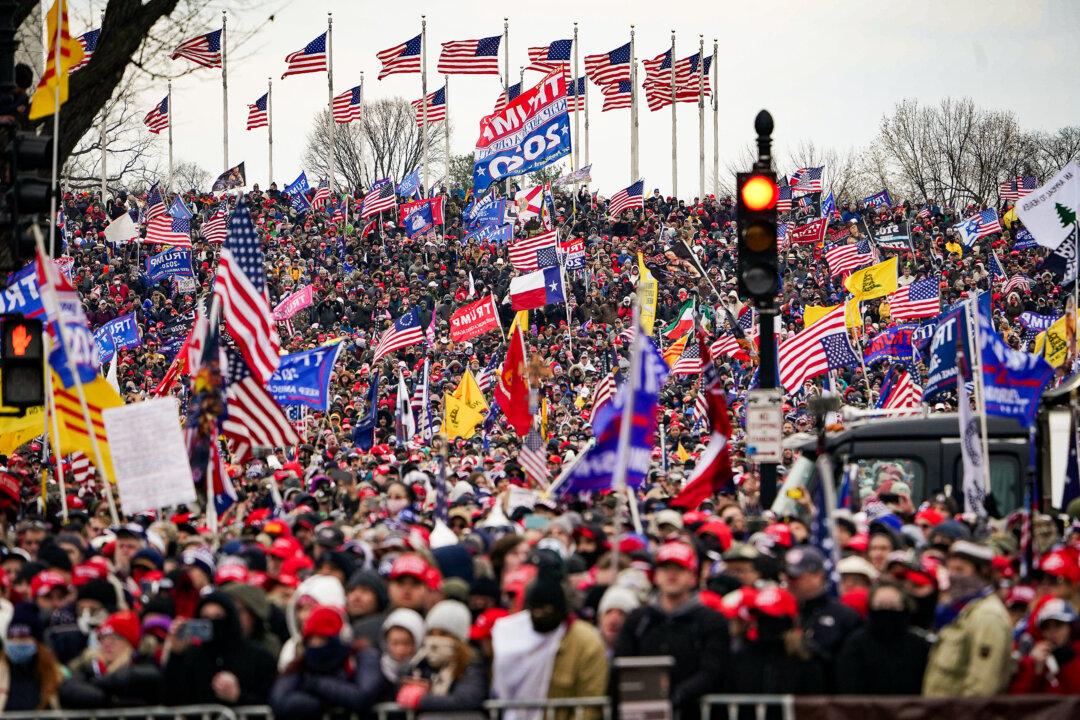Police officers who attended President Donald Trump’s rally on Jan. 6, 2021, can be identified, Washington state’s highest court has ruled.
The four officers, with the Seattle Police Department, “have not shown a likelihood of success on the merits that their identities are exempt based on either a statutory or constitutional right to privacy,” the Washington state Supreme Court said in a Feb. 13 decision.





